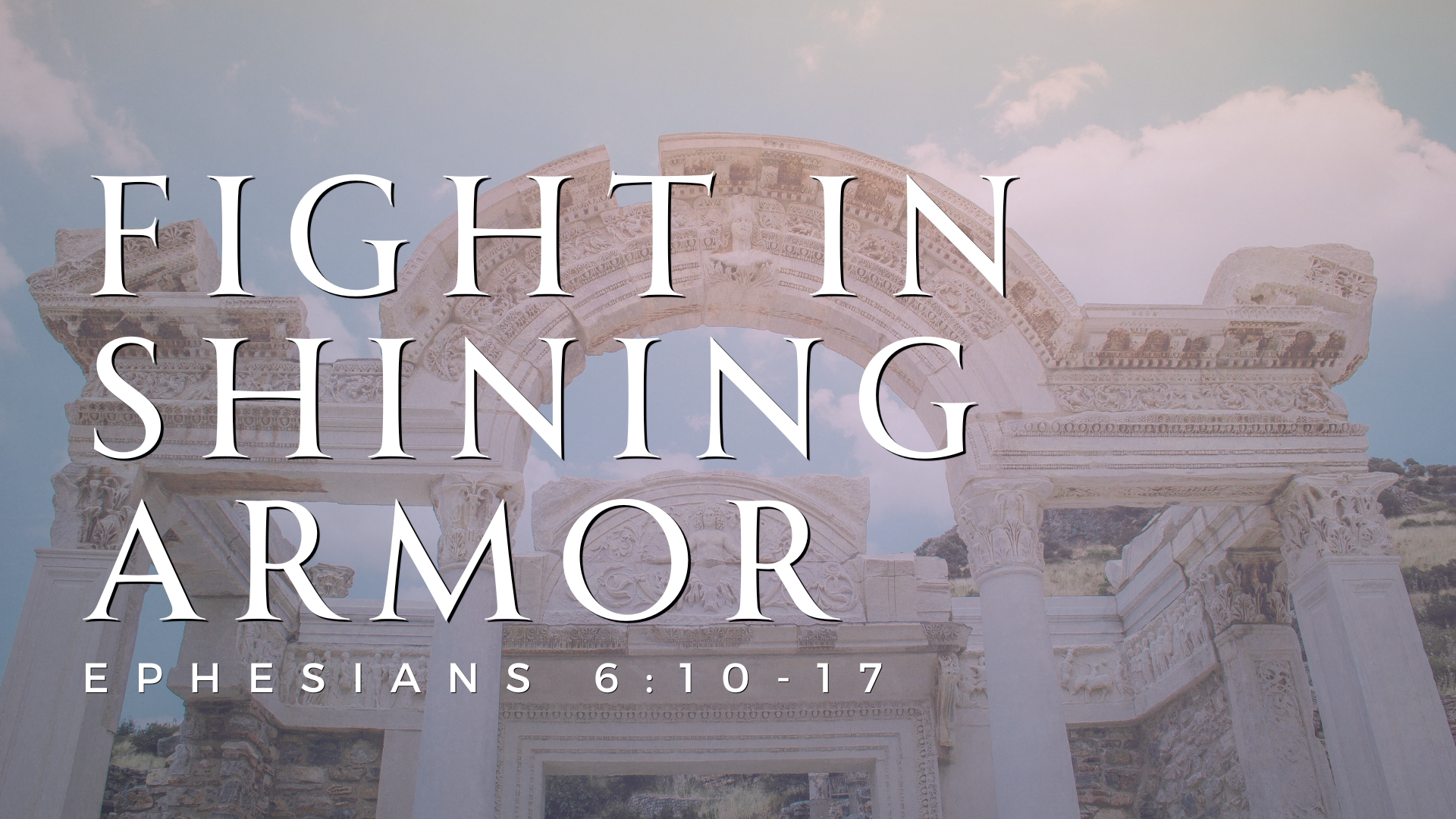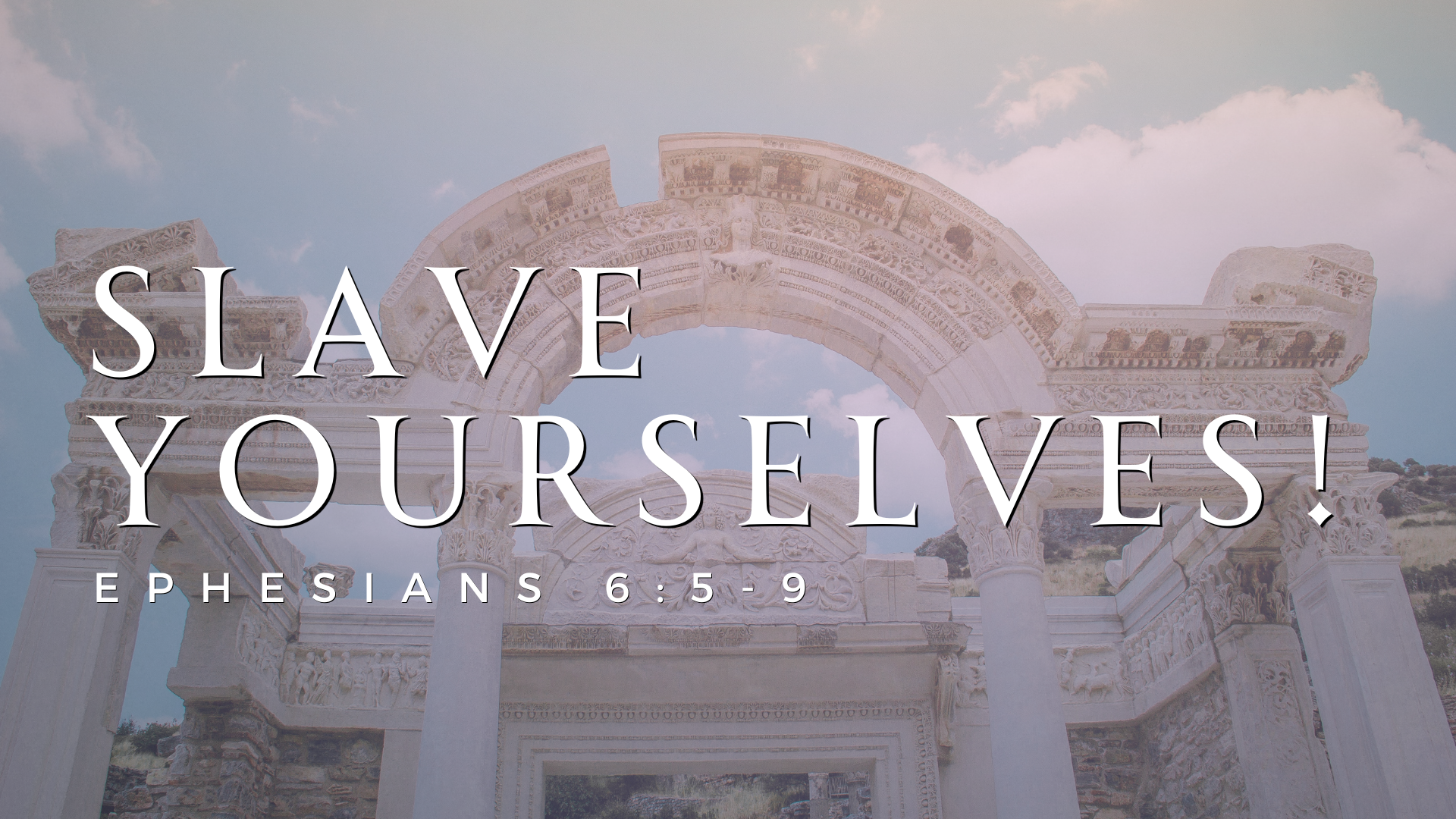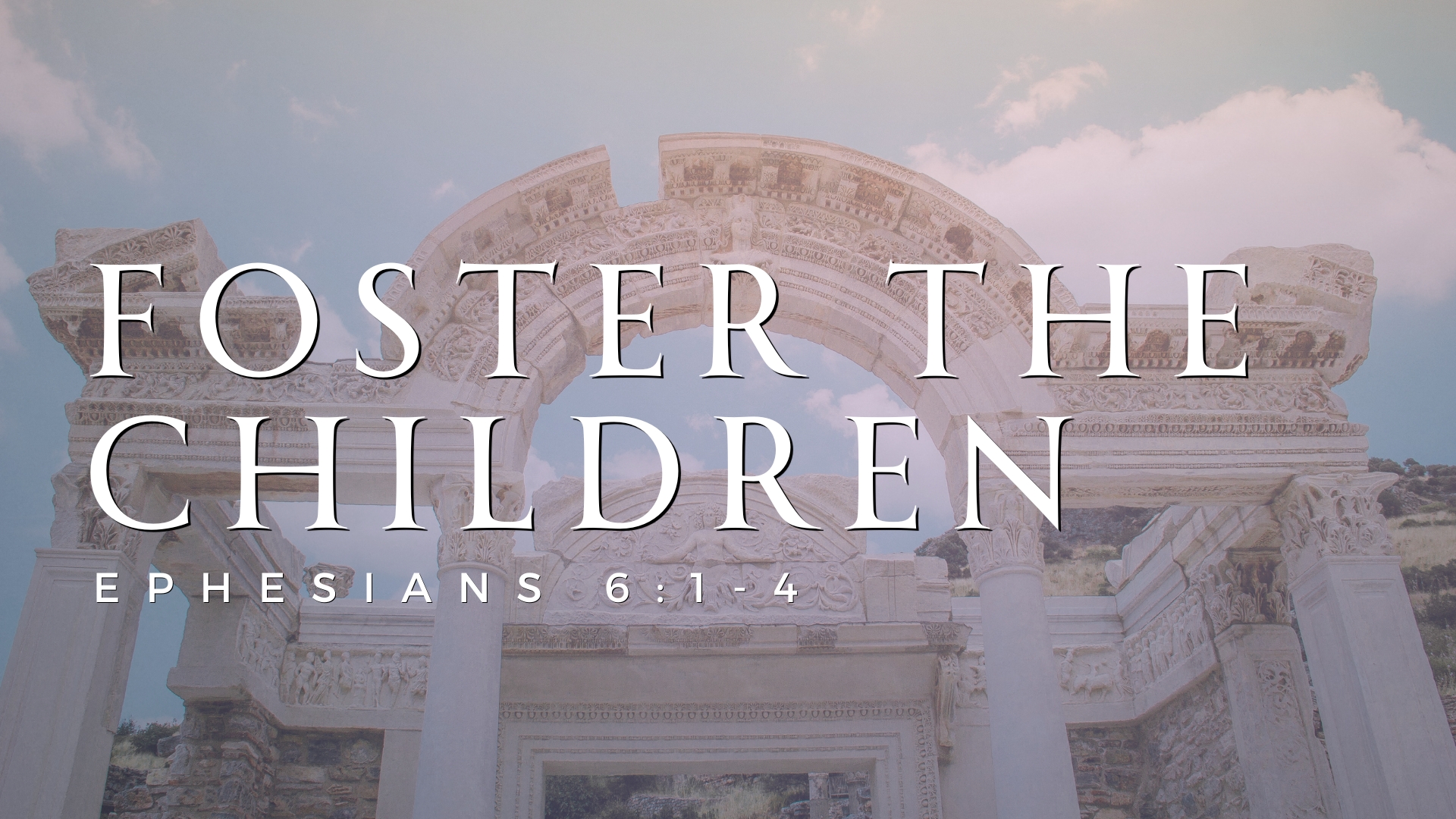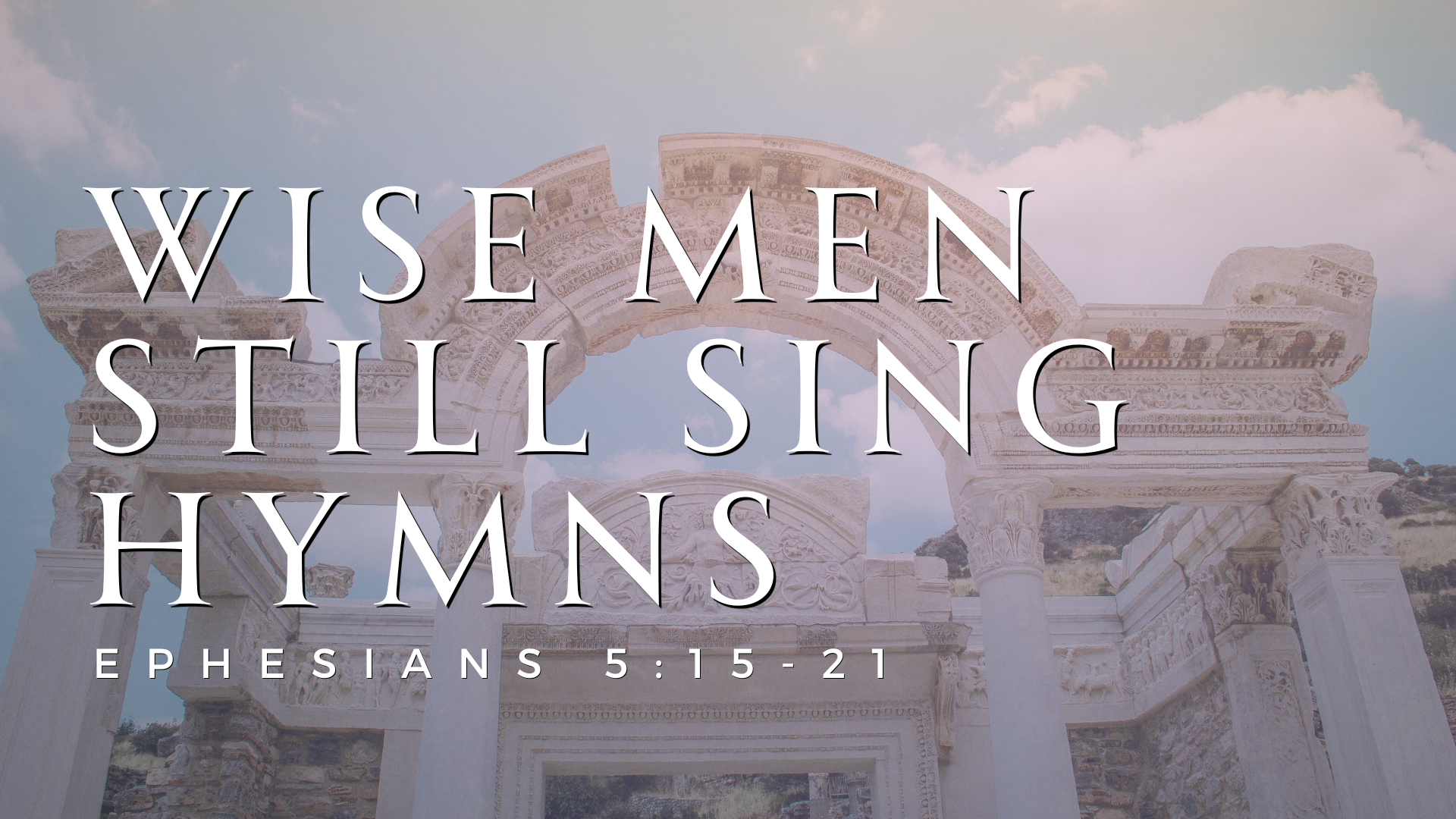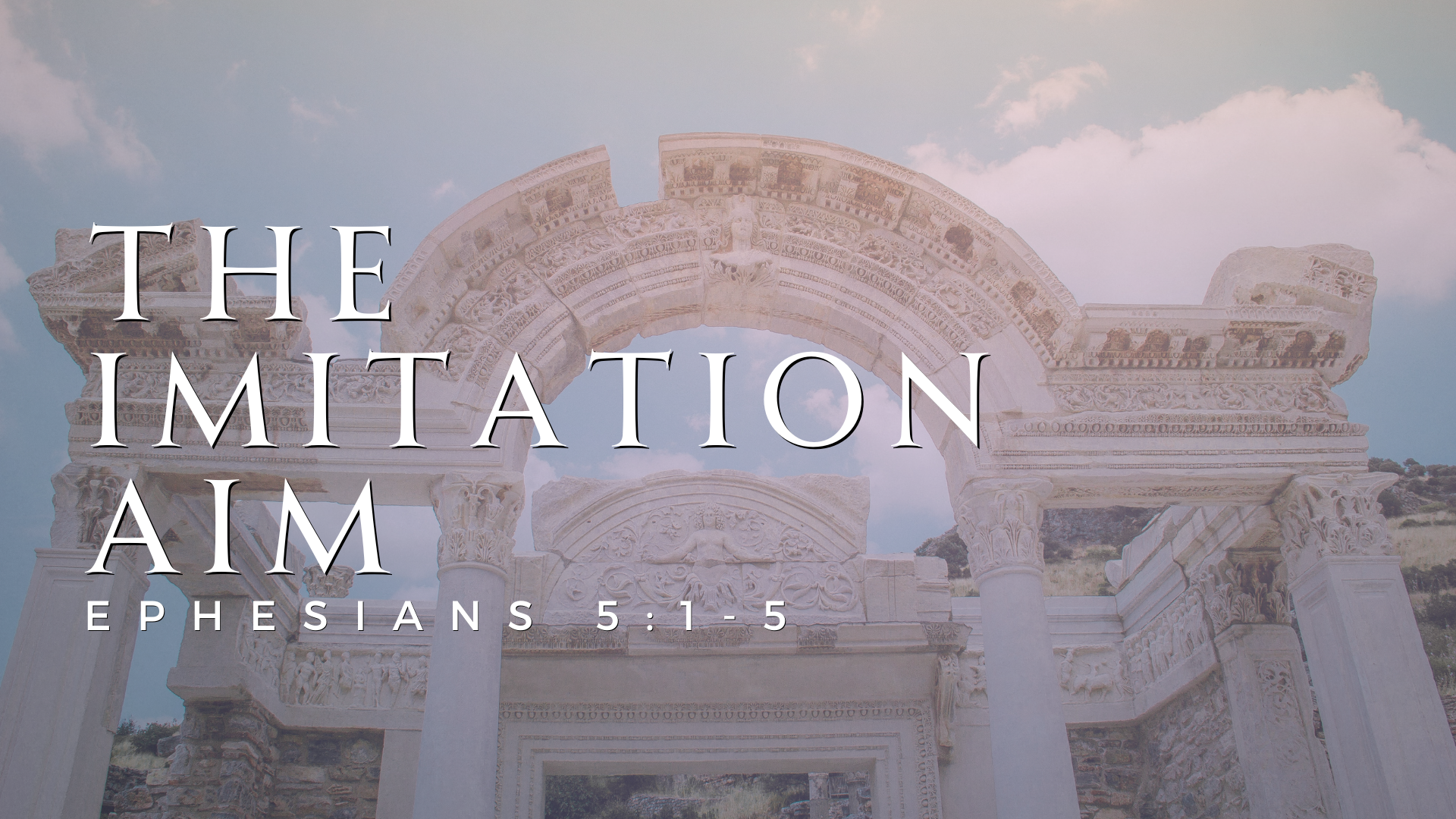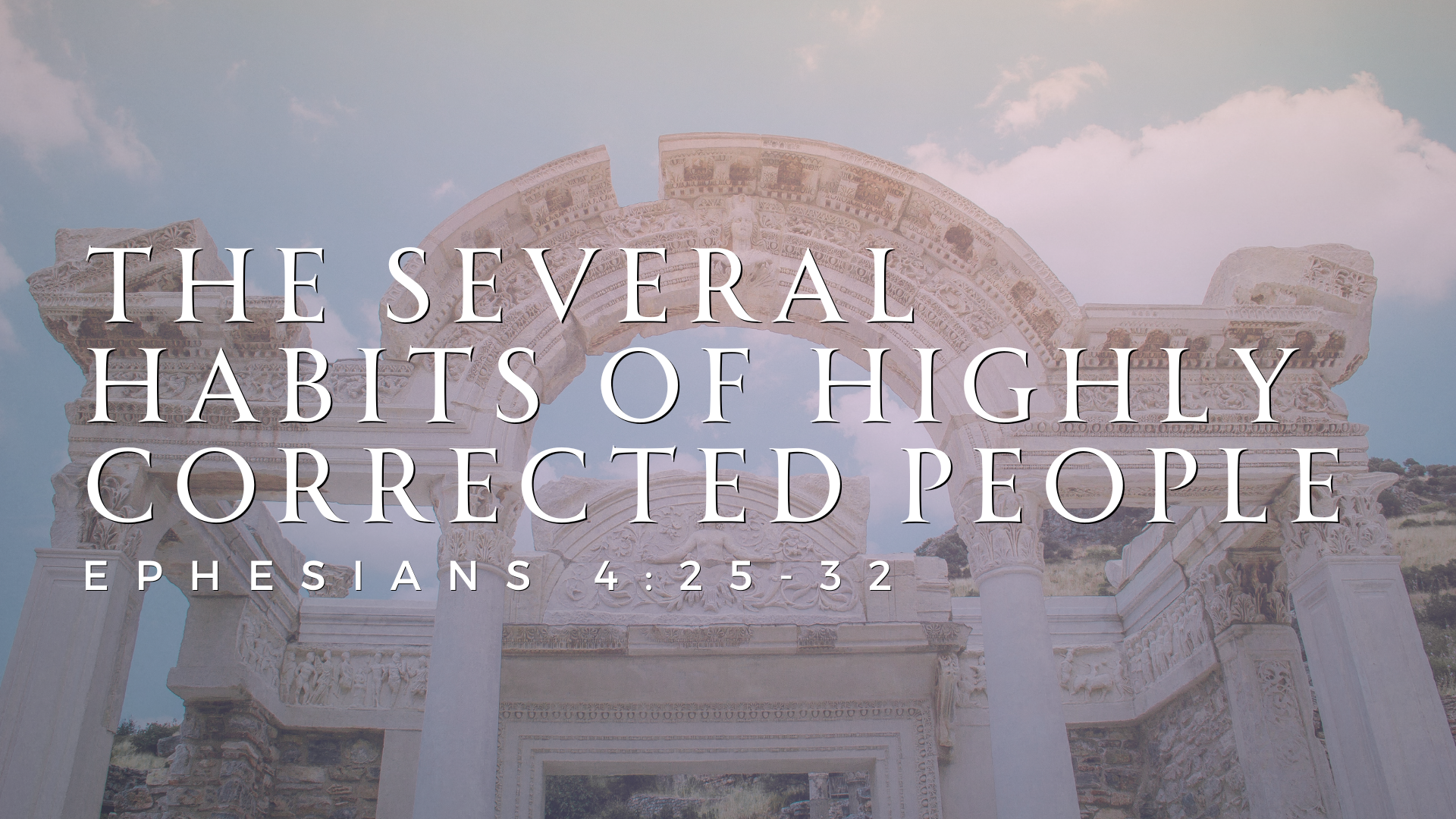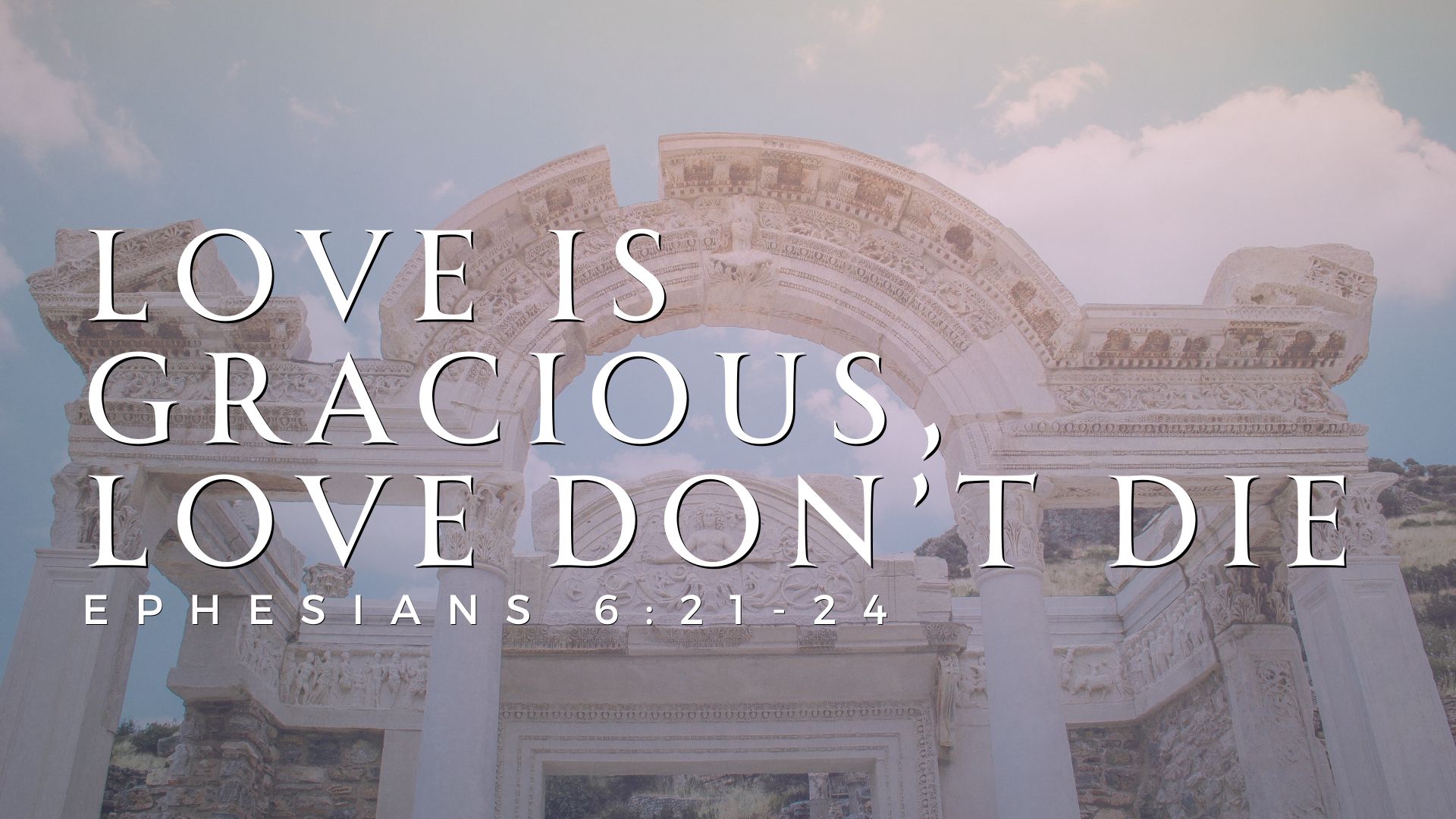
Love Is Gracious, Love Don’t Die (Ephesians 6:21-24)
Ephesians 6:21-24 – 21 Tychicus, our dearly loved brother and faithful servant in the Lord, will tell you all the news about me so that you may be informed. 22 I am sending him to you for this very reason, to let you know how we are and to encourage your hearts.
23 Peace to the brothers and sisters, and love with faith, from God the Father and the Lord Jesus Christ. 24 Grace be with all who have undying love for our Lord Jesus Christ.
Tonight, we part ways with the Church at Ephesus. Of course, for them it wasn’t the end. They had decades of history yet to experience. Closing this letter, Paul didn’t expect to see his Ephesian friends again, but he very much expected God to continue His work of grace in their church.
Ephesians 6:21 – 21 Tychicus, our dearly loved brother and faithful servant in the Lord, will tell you all the news about me so that you may be informed.
Paul wrote while under house arrest waiting to testify before Caesar Nero. After finishing his letter, he put it in the hands of Tychicus to personally deliver. But not just one letter – on this trip, Tychicus would also deliver the New Testament letters to the Colossians, to Philemon, and Paul’s non-Canonical letter to the Laodiceans. So who was this Christian mail man?
He’s mentioned five times in the Bible. He was a convert from Asia Minor. Some believe he was actually from Ephesus and saved during Paul’s stay there in Acts 19. He became a close friend and ministry partner of Paul’s. He traveled with Paul on some of his journeys. In fact, he left Ephesus with Paul in Acts 20 with the group that delivered financial aid to Christians in Jerusalem.
As Ephesians closes, it’s about 62AD. Tychicus is with Paul in Rome. Now, with letters in hand, he’d travel to Asia Minor to visit multiple churches. Five or seven years later, when Paul was imprisoned a second time, Tychicus is by his side again. Paul would send him once more to Ephesus, this time with a letter we know as 2 Timothy. Paul had Tychicus fill in for Timothy so that Timothy could go to Rome to visit Paul and bring him a coat and some study materials.
It’s possible that Paul also sent Tychicus to relieve Titus so he could come for a visit. It was either going to be Tychicus or a fellow named Artemas.
So, we see Tychicus going back and forth, here and there, dropping off letters, filling in for this guy or that guy, carrying funds to help hungry people. If he had a job description, it would be gofer. There’s no record of him performing miracles or planting churches or preaching to thousands. But, reading the verses that mention him, we get a sense of how valuable and meaningful his regular faithfulness really was.
Yes, Paul wrote the letter, but if there’s no Tychicus, who would ever read it? He stood and walked in the gap, not just for the Ephesians, but in all these other situations. His helpfulness, his willingness to do small things, his availability and reliability extended the reach of Paul’s ministry. He was an agent of God’s help and relief and wisdom and provision and truth and so much more.
He wasn’t just a mail man. I get packages all the time. I don’t think I could pick out my Amazon driver from a lineup of one. But Tychicus didn’t just drop the message and move on. He also told them all the news about Paul. The word there means the “who, what, which, and why.” Tychicus would give personal testimony of what God was doing through Paul’s life and imprisonment.
The book of Acts closes with this sentence, “Paul stayed two whole years in his own rented house. And he welcomed all who visited him, proclaiming the kingdom of God and teaching about the Lord Jesus Christ with all boldness and without hindrance.”
Remember: Most of the recipients of this letter didn’t know Paul personally. Tychicus could be a witness. He could tell them that Paul wasn’t faking. God was fulfilling His promises. Paul wanted the Ephesians to know these things. He said, “I’m sending Tychicus so that you may be informed.”
This has been a major theme of the letter – that God’s people understand and grow in knowledge, and apprehend more and more of the truth of God and the power of God for day-to-day living. God wants you to be informed. Informed of His truth. Sharing in His wisdom. Growing in your understanding of His heart and His work and your place in it.
Ephesians 6:22 – 22 I am sending him to you for this very reason, to let you know how we are and to encourage your hearts.
From a human perspective, Tychicus might look like a gofer. In reality, his service to Paul and to the Church and to the Lord changed the world. He was an encourager. It’s the same term Jesus used of God the Holy Spirit when He said, “I will ask the Father, and He will give you another Counselor to be with you forever. He is the Spirit of truth.” Tychicus was full of Spirit and therefore was used by the Spirit to do the work of the Spirit.
This is a wonderful example of what God wants to do in our lives. In 2 Corinthians, Paul said:
2 Corinthians 1:3-4 – the God of all comfort…comforts us in all our affliction, so that we may be able to comfort those who are in any kind of affliction, through the comfort we ourselves receive from God.
The word comfort used again and again in those verses is the same word used to describe what Tychicus did: Encourage, build up, come alongside to help. Do the work of the Spirit.
So, on the one hand, the job Tychicus was given was relatively routine: Deliver a letter and share some news. But, on the other hand, this wasn’t necessarily an easy thing to do. This was a long trip – dangerous and difficult. It didn’t come with a lot of recognition or fanfare. But it was so needful, so beneficial. He was able to represent both God and Paul to these Christians in Asia Minor.
Ephesians 6:23 – 23 Peace to the brothers and sisters, and love with faith, from God the Father and the Lord Jesus Christ.
Ephesians is a blatantly Trinitarian book. We see both Father and Son here. In chapter 1, all three Persons are listed in a verse together. Keep that in your pocket for when you need it.
What God wants for His people is peace and love and growing faith. God does not want us to spend our lives full of fear or confusion. He doesn’t want us to waste our days in constant aggravation or discontent. He offers us peace and calls us to it.
Peace means tranquility, freedom from worry, harmony. The city of Ephesus was a city full of tension. You had all these cultures coming together: Romans and Jews and pagans. There were all sorts of religions and cults. There were 25-30 different pagan temples in the city. The great harbor was constantly silted by the river, threatening the commerce and economics of the area.
There was a gladiator school in Ephesus, and many fights in the theater. There was, of course, political unrest. This was the time of revolts, of assassinations, of Emperors perhaps burning their own capitals.
In a climate like that, God’s plan for His people was peace – harmony when the world is full of dissonance. Tranquility when the world was full of animosity. Rest and well-being.
Paul reminded them that this life-changing, counter-cultural love and peace was from the God of heaven and earth – from Jesus Christ, Who is Lord. It’s found nowhere else. You see, in Ephesus, the message was: Caesar is lord. The Emperor Cult held great sway in the city. As an example, in the early Second Century AD, a prominent citizen of Ephesus built a fountain with a great statue of Caesar with his foot on the globe. Ephesian Christians walking downtown would see a sculpture of the goddess Nike, holding the wreath of victory in her hand. The messaging was in your face.
Every day would be a choice to believe God, rather than man – to walk with Him in spite of the world’s flow. So Paul encouraged them: Have faith. Receive the peace of God, the love of God, all the promises and power that he talked so passionately about in this letter. The Lord would follow through on His promises and provision.
Ephesians 6:24 – 24 Grace be with all who have undying love for our Lord Jesus Christ.
All of the victory and the peace and the love and the spiritual strength and the unity was possible because of God’s grace and only by God’s grace.
A few verses earlier, Paul spoke of the armor of God. We remember the images of the battles coming our way. We’ve heard about our everlasting inheritance and our place in God’s eternal, cosmic work. We’ve seen how much God loves us and His affection for us. It’s all from His grace. God loves us and delights to pour His favor and His kindness into us so we can experience life more abundantly.
Compare that to what Rome’s warriors experienced. Before beginning their fights, gladiators would say: “Hail, Emperor. We who are about to die salute you! And then the emperor forced them to destroy one another.
But the Christian’s King is no Roman Emperor. The King of love, our Shepherd is, Whose goodness faileth never.
For the third time in four verses, Paul mentions love. Here, he calls the Ephesians (and us) to an undying love. Your version may say love “in sincerity,” or, “incorruptible.” Linguists tell us that the words literally read, “in incorruption, incorruptibility, immortality.” You could also use the term, “unfading love.”
This was Paul’s closing prayer for these precious people: That they would grow and flow with God’s grace as their love for Christ endured, day after day.
Of course, most of you know what I’m going to say next. 30 or 35 years after this letter was read in their assembly, a new letter was delivered. This time it wasn’t from Paul, it was from Christ Himself. We can read it in Revelation 2. There, the Lord commends the church at Ephesus for their good works and their unwillingness to tolerate evil people. They had good doctrine. They had good programs. They endured hardships and had not grown weary in doing Christian things. But they no longer loved the Lord.
The Ephesians teach us that loving God isn’t just about serving. Serving is part of it. Enduring is part of it. Defending orthodoxy is part of it. Suffering patiently is part of it. But, at the base level, our hearts must belong to the Lord, personally, passionately, affectionately. Their love had faded. And, from what we can tell, it faded imperceptibly over time. But, one day, it was gone. And so, the Lord wrote them a very loving, but very direct letter, urging them to return to that love they once had.
What happened in-between Ephesians 6:24 and Revelation 2:1? The story is pretty interesting. During the first century, Ephesus “was one of the largest centers of Christian activity in the Gentile world.” The church was world famous for their Godly activity.
Timothy became their pastor for many years. In fact, when Paul wrote 1 and 2 Timothy, that’s where he was ministering. But, during those Timothy years, false teachings started to creep in from outside. Paul had predicted this back in Acts 20, so many years before.
Paul was set free from his first imprisonment. Church history teaches that he went as far as Spain preaching the Gospel and then, on his way back, returned once more to Ephesus, maybe 5 or 7 years after he wrote this letter. Shortly after that visit he was arrested again. This time he would be martyred for his faith.
A few years after Paul died, when the Jews revolted against Rome Jerusalem and the temple were destroyed. Around that time, the Apostle John came to live in Ephesus. Church history suggests that Jesus’ mother, Mary was with him there for a few years. There’s a traditional site where it believed that they lived.
While in Ephesus, John wrote his Gospel, then 1, 2, and 3 John. During this time, it seems, there was a split within the church – something John wrote about in his letters.
In the mid-90’s, John was exiled to the island of Patmos, about 60 miles off the coast of Ephesus. While John was there, Timothy, now an old man, continued to preach the Gospel in the city. He was beaten to death after preaching against idolatry.
The Church Father Ignatius, who lived and wrote at the time, records that Onesimus then took over as pastor at Ephesus. That would’ve been a full-circle thing for this friend of Paul’s who was once a slave. You see, when Tychicus came to Ephesus with Paul’s letter, Onesimus was with him! He would’ve been quite an object lesson, by the way. Remember when Paul was teaching about slaves being faithful as unto the Lord? And there’s Onesimus, standing by, waiting to go back into slavery in Philemon’s house.
After a few years of exile, John was released from Patmos. He returned to Ephesus. It was then that he delivered Jesus’ letter to this beloved church.
We don’t know how they responded. We don’t know if they ran back to the Lord or continued in lovelessness. What we do know is that the Ephesians had everything they needed for growth, success. Think about it: They had received teaching ministry from Paul, Apollos, Timothy, John, Onesimus, and Tychicus. All these New Testament writings were there: Ephesians, 1 and 2 Timothy, 1, 2, 3 John, the Gospel of John, the Revelation. The church became prominent and influential. They had room to grow and had everything they needed to succeed.
So what happened? The problem was within.
Research shows that one in 13 Americans has an undiagnosed disease. The Ephesians weren’t lacking in anything they needed. They problem was within their own hearts. There was a slow drift away from love into programs. Into gestures. Into the motions of Christian activity without any real passion for Christ. These Ephesians, who had been saved out of such pagan culture, had now become cultural Christians.
This is not just a sad story, it’s a serious warning. The Ephesians church was a powerhouse of Godliness, truth, activity, and growth for decades. But in the end they were in a position where the Lord had to say, “Look, I’m about to remove your lampstand.”
If it could happen to this church, it could happen to any church. And so, no matter what lies ahead, our personal and corporate focus should be to walk with the Lord in love. Love for Him. Love for His truth. Love for His leading. Love for His people. As we love God, His grace flows in us. And when grace is operating in our lives and in our midst, we see what’s possible. Ephesians has shown us that.
This isn’t some new idea. It’s been God’s plan all along for all His people. He chose us in Him, before the foundation of the world, to lavish His grace on us so that we could be saved and transformed and assigned in His purposes and then put on display forever to prove His greatness and kindness.
How could we stop loving a God like this? We will stop if we don’t remind ourselves of what is true, of Who God is and what He has done. As we grow in our knowledge, our love should increase, not fading but become richer and deeper and more alive.

